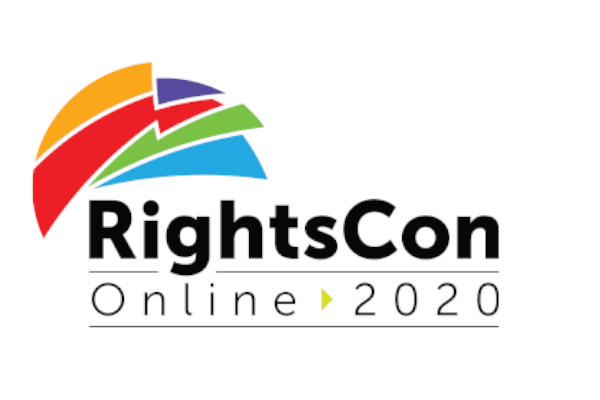What We Learned During RightsCon 2020

Every year, NDI joins thought leaders, practitioners, and activists from civil society, governments, media, academia, and business for a week of global discussions on safeguarding human rights in our digital age at RightsCon. This year, AccessNow convened an impressive virtual summit on a variety of topics, including election integrity, privacy, political change and more.
Here are some of the conversations that caught our eye:
On Disinformation and Content Regulation
Disinformation campaigns waged by non-state actors, and sometimes nation states, are amplified by unwitting local collaborators that help spread these narratives in their networks. Identifying disinformation campaigns with tools like 0archive is just a first step to combat false narratives. They must also be actively debunked by reputable news organizations, and the general public must be educated to inoculate against disinformation. Governments also often consider legislation against fake news--but that can be problematic.
In a panel discussion, experts on disinformation and digital rights issues and representatives from social media platforms discussed the perils presented by the new proposed fake news law in Brazil. The bill would require major content providers to identify users that are found to be sharing content in an automated or inauthentic fashion, even on encrypted systems such as WhatsApp. Providers could be sanctioned and even prevented from operating in the country if they do not comply with its demands, which conflict with freedom of expressions and privacy provisions in the Brazilian Digital Bill of Rights and Data Protection Law, and ultimately restrict the Brazilian consumers’ access to major tech platforms. The debate shows the challenge of content regulation, even with the best of intentions to limit disinformation and other harmful content in democratic contexts.
NDI’s own work on disinformation is extensive, encompassing more than 30 projects in every region of the world. Our flagship effort, INFO/tegrity is designed to enhance resilience of political processes and support our partners in creating a safe information environment. Our staff work with partners on projects to monitor elections, identify and take down hate speech and violence against women in politics, engage with Silicon Valley through the Design 4 Democracy Coalition and to strengthen democratic institutions for the information age overall.
On Data Privacy and Surveillance
Who controls individual data and aggregate, or community, data is the next arena for battle. In a mesmerizing “fireside chat,” Shoshana Zuboff (author of The Age of Surveillance Capitalism) discussed “human futures markets” - in which predictions about our online behaviour are monetized for vast amounts of profit (but not by you!). On a positive note, she reiterated that a future in which our every move is mined for data is not something we have to throw our hands up in the air and accept. The pushback by the citizens of Toronto against Sidewalk Labs is just one example.
And don’t forget to read The Engine Room’s report on the lived effects of Digital ID to understand how who controls the data and what data is collected can create new and exacerbate old inequities for access and opportunity.
On a Positive Democratic Future
Nerd rockstar and friend of NDI, Audrey Tang, Taiwan’s first “digital minister,” is an optimist. Despite the island’s precarious position next to the PRC juggernaut, Minister Tang believes that the current digital pandemic of disinformation and hate speech can be beaten - and that in Taiwan, they have been succeeding. She spoke of Taiwan’s commitment to open data and leadership in deliberative citizen input in decision making. Tang had a novel idea to keep innovating - the creation of a system of “reverse mentorships” where everyone over 35 has an obligation to be mentored by someone younger: a clever approach to try and help older - and typically more powerful - leaders understand and take advantage of young people’s native understanding of technology and new approaches to engagement. For protecting our natural resources, Minister Tang suggested a direct approach: that rivers, mountains, forests, etc. should themselves have a vote and voice in parliament. How their spokespeople and mouthpieces were to be selected was not, unfortunately, something they had time to get into during the panel discussion.
On Multisectoral Collaboration
Security is everyone’s problem - but no individual or even sector can solve it on their own. Representatives from Cloudflare, Microsoft, IRI and the Alliance of Democracies came together to discuss the challenges of protecting the at-risk civic and political groups represented at RightsCon. Many major tech companies - particularly those that are members of the Design 4 Democracy Coalition have some resources available for rights defenders, such as Cloudflare’s Project Galileo, Google’s Advanced Protection Program (APP) and Microsoft’s AccountGuard. However, these are not coordinated between organizations - and may not get at the biggest threats that individuals face. Worse, while they are individual and powerful solutions, they do not look at organizations holistically, or help them understand and triage their personalized threats. This remains a major challenge for beleaguered human rights groups, particularly with our pandemic dependence on the internet.
We’re excited to tackle the challenge of multisectoral collaboration and bring these other insights from RightsCon to our work this fall. We also hope that next year, the NDI team can join our partners at RightsCon IRL!
